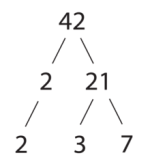 I’ve been moving right along with my podcast this past month. My first episode was published on December 29, 2013 and as of today, January 29, 2014 I’ve published five episodes. The fifth one, which I just published is my very first episode with an interview.
I’ve been moving right along with my podcast this past month. My first episode was published on December 29, 2013 and as of today, January 29, 2014 I’ve published five episodes. The fifth one, which I just published is my very first episode with an interview.
If you’ve listened to my podcast intro, you know that talking to and about the people in our industry has been a goal right from the start. That being said, I wanted to see if I could make shows by myself at first to see if I was really going to do this thing. From now on, I plan to mix up the kinds of shows as I find the right topics or guests to suit one style or the other.
In Episode 5, I knew from the start that I wanted to have a guest. Like a lot of podcasters, I planned on using the guests in a very selfish way. Sure, I’d be making the podcasts for the listeners, but at the same time I wanted to pull double duty and learn about things that I’ve always been curious about.
As I thought about topics to discuss, the first one that jumped out at me was Aspect Oriented Programming. I kind of knew what it was about, but I really wanted to know and understand more. As soon as I finished recording Episode 4 of the podcast, I used my podcast endorphins to take a risk and send out an email to the guy who literally wrote the book on Aspect Oriented Programming.
Matt was gracious enough to give me some time and talk about the topic, some of the frameworks you’ll encounter, and his book. He even provided a promo code for my listeners, so I couldn’t have been happier with him as a guest. He made it very easy to talk about this topic and he really knows the landscape. Check out the episode and definitely use the promo code to buy the book if your interest is piqued by the discussion.
I also learned a few tips and tricks that I’ll have to put into play next time when recording and mixing two disparate tracks and I’m thankful for the opportunity to get to keep doing this, to keep learning and trying to get better, and to work in a community where people like Matt are who are so willing to come and make time for a lowly podcast with literally TENS of listeners per episode.
Great big thanks again to Matt and to all of you who listen to the show.
You can also subscribe to the podcast at any of these places:


Thanks to all the people who listen, and a special thanks to those who have rated me. I really appreciate it.
The episodes have been archived. Click Here to see the archive page.
 The most difficult thing that I’ve found while doing
The most difficult thing that I’ve found while doing  A very common objection that I hear that keeps people from teaching others is that the person feels that they aren’t “expert” enough to teach someone else. Any while I don’t doubt that the person lacks the credentials to be an “expert”, they do have some life experience to share.
A very common objection that I hear that keeps people from teaching others is that the person feels that they aren’t “expert” enough to teach someone else. Any while I don’t doubt that the person lacks the credentials to be an “expert”, they do have some life experience to share. My second podcast went out this weekend.
My second podcast went out this weekend. I was checking out the internet and I came across someone doing a code kata for prime factorizations. I stopped watching what they were doing and decided to try my own hand at it. Here is the result:
I was checking out the internet and I came across someone doing a code kata for prime factorizations. I stopped watching what they were doing and decided to try my own hand at it. Here is the result: